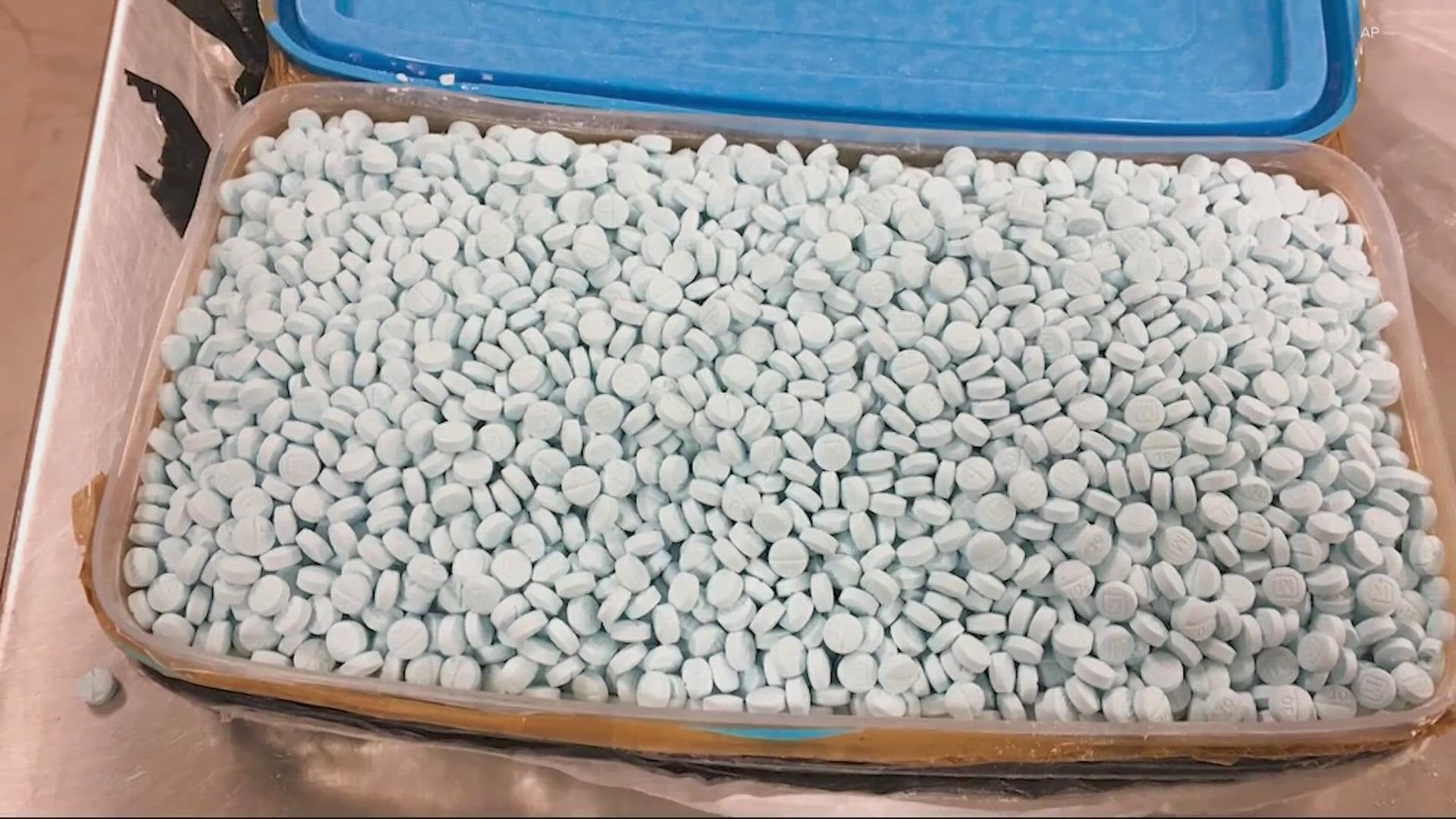JACKSONVILLE, Fla. — Scientists are working on altering fentanyl to reduce the deadly side effects and possibly save lives. Part of this research was done at the University of Florida.
See the published study here.
Professor and researcher Dr. Jay McLaughlin tells First Coast News the amount of fentanyl that could kill someone is so small it would only be the size of the tip of a pen.
"The tip of this pen, if you can see that, if you were to sprinkle a little bit of fentanyl on that, that would be the active dose you need to get algesia. If you triple that, you start to get into the position where you start to get into respiratory depression. If you double that again, you are probably going to die," McLaughlin explained.
The CDC estimates 250 Americans die each day from an overdose… researchers asked themselves, what if they could stop this?
McLaughlin says they found that by re-engineering the drug, they might be able to.
“People take fentanyl, this very potent opioid compound, they stop breathing. So the question was: can we take advantage of the useful pain killing benefits of something like fentanyl but re-engineer it to make it safer based on our new understanding?" McLaughlin said.
He is one of many in a list of accomplished researchers from the University of Florida, Washington University in St. Louis, the University of Southern California and Stanford University who took part in this study which found a way to redesign fentanyl to take away the potentially fatal side effects. They did this by applying new insights into how to mu-opioid receptor works.
This study could impact other opioids and dangerous drugs, too.
“It’s a new insight and it’s a new way for us to maybe design safer drugs. It’s a new way for us to understand what’s going on with the drugs we have,” said McLaughlin.
To get their research to fruition in pharmacies, McLaughlin says they need other researchers to validate their results and get more data before they can begin clinical trials.
In the meantime, the same group of researchers are going to continue to work on fentanyl. This time they are focusing on how to alter the side effects that deal with addiction and opioid abuse disorder.

